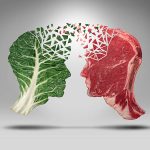If you’re looking to gain or lose weight, it’s important to understand your daily calorie needs. Your daily calorie needs are the number of calories you need to consume each day to maintain your current weight. By understanding your daily calorie needs, you can make informed decisions about your diet and exercise routine.
To use our Daily Calorie Needs Calculator, simply enter your age and weight in the corresponding fields and click “Calculate.” Our calculator will provide you with an estimate of your daily calorie intake requirements based on your age, weight, and other factors.
It’s important to note that our calculator provides an estimate and may not be 100% accurate for everyone. It’s important to listen to your body and adjust your calorie intake accordingly. If you find that you’re consistently gaining or losing weight despite following the recommended calorie range, it may be time to adjust your intake or speak with a healthcare professional.
Factors That Affect Daily Calorie Needs
There are several factors that can affect your daily calorie needs. These include:
Age – as you get older, your metabolism slows down, so you need fewer calories to maintain your weight.
Gender – men generally have a higher metabolism than women, so they need more calories to maintain their weight.
Height – taller people have a higher metabolism, so they need more calories to maintain their weight.
Weight – heavier people need more calories to maintain their weight.
Activity level – the more active you are, the more calories you need to maintain your weight.
Muscle mass – people with more muscle mass have a higher metabolism and need more calories to maintain their weight.
Genetics – some people are naturally predisposed to having a higher or lower metabolism.
Tips for Meeting Your Daily Calorie Needs
If you’re trying to gain or lose weight, meeting your daily calorie needs is crucial. Here are some tips to help you meet your daily calorie needs:
Eat a balanced diet – make sure your diet includes plenty of fruits, vegetables, whole grains, lean proteins, and healthy fats.
Keep track of your calories – use a food journal or calorie tracking app to keep track of your daily calorie intake.
Exercise regularly – regular exercise can help you burn more calories and increase your metabolism.
Don’t skip meals – skipping meals can cause your metabolism to slow down and make it harder to meet you recommended daily calorie intake.
Common Myths About Daily Calorie Needs
There are several common myths about daily calorie needs that can lead to confusion and misinformation. Here are some of the most common myths:
All Calories Are Created Equal: While it’s true that a calorie is a unit of energy, not all calories provide the same nutritional value. For example, 100 calories of broccoli will provide more nutrients than 100 calories of soda.
Cutting Calories Will Always Lead to Weight Loss: While reducing your calorie intake can help you lose weight, it’s not always that simple. Severely restricting calories can actually slow down your metabolism and make it harder to lose weight in the long run.
Skipping Meals Will Help You Lose Weight: Skipping meals can actually slow down your metabolism and lead to overeating later in the day. It’s important to eat regular meals and snacks throughout the day to maintain steady blood sugar levels and prevent overeating.
Conclusion: Taking Control of Your Daily Calorie Needs
Understanding your daily calorie needs is an important part of maintaining a healthy lifestyle. By knowing how to calculate your daily calorie needs and the factors that can impact them, you can make informed decisions about your diet and exercise routine. Using a daily calorie needs calculator can provide you with an estimated calorie range, but it’s important to listen to your body and make adjustments as needed.
To meet your daily calorie needs, focus on eating a balanced diet, practicing portion control, staying hydrated, and getting regular exercise. It’s also important to be aware of common myths surrounding daily calorie needs, such as the belief that all calories are created equal or that skipping meals is a helpful weight loss strategy.






















